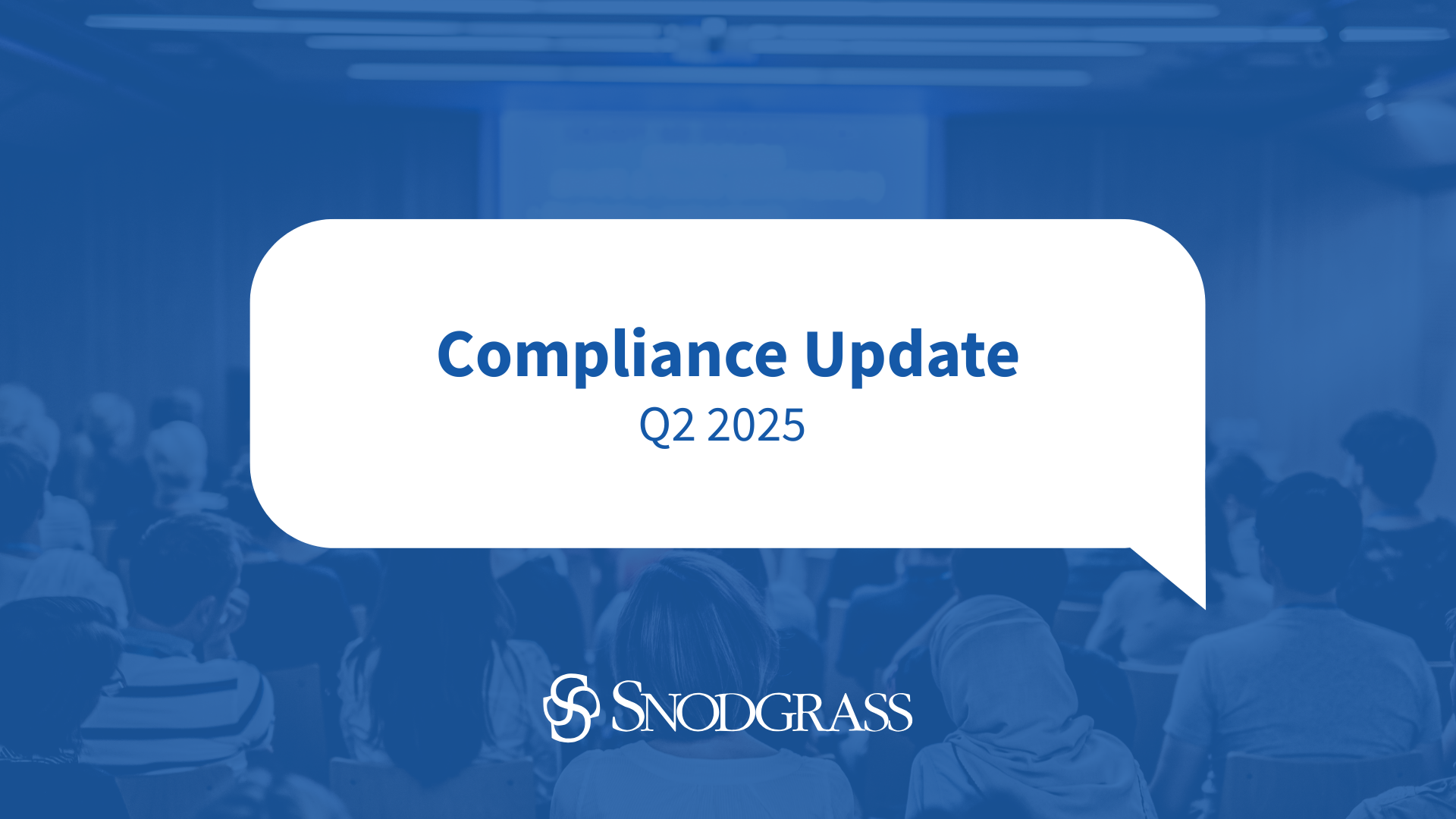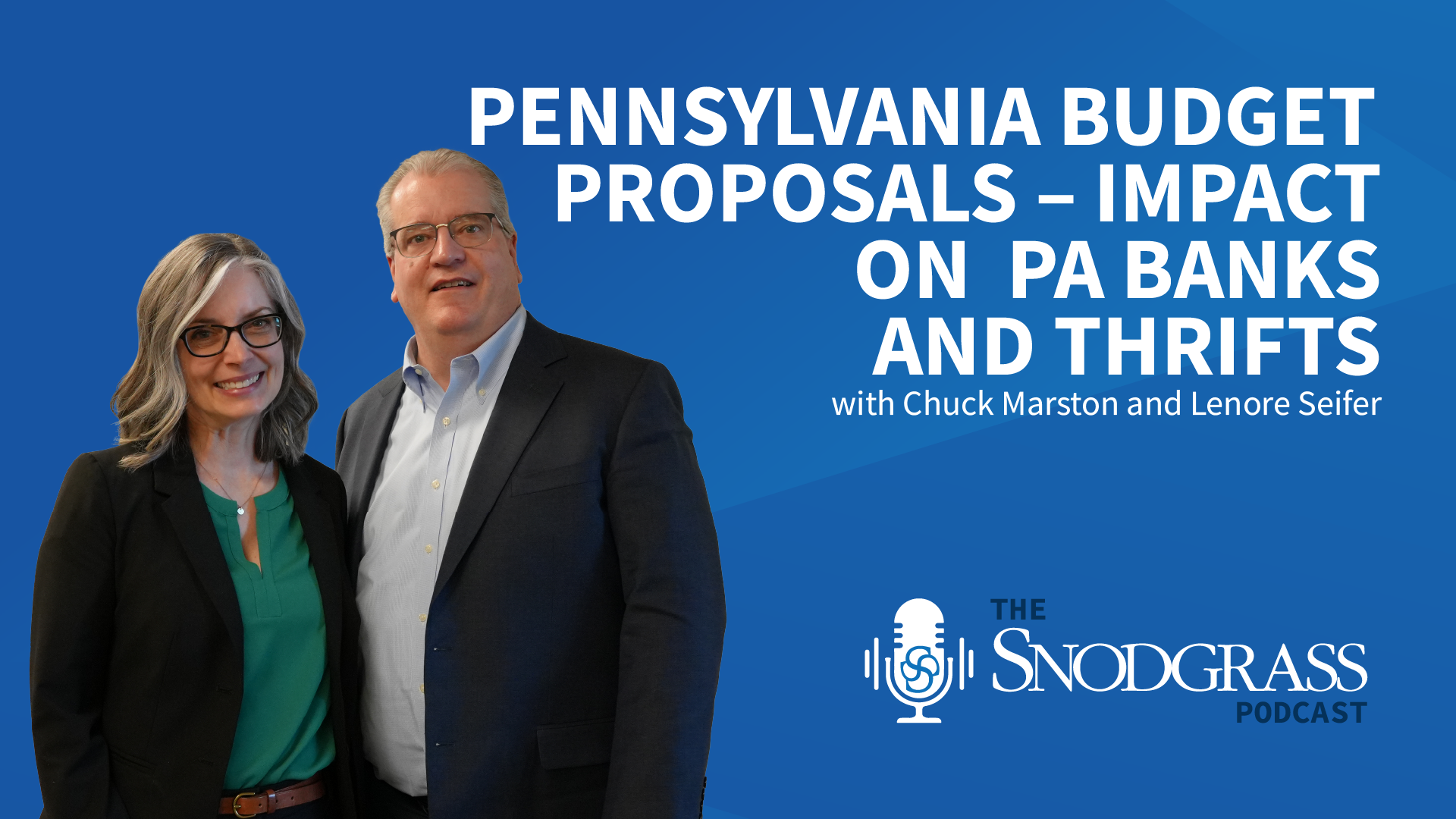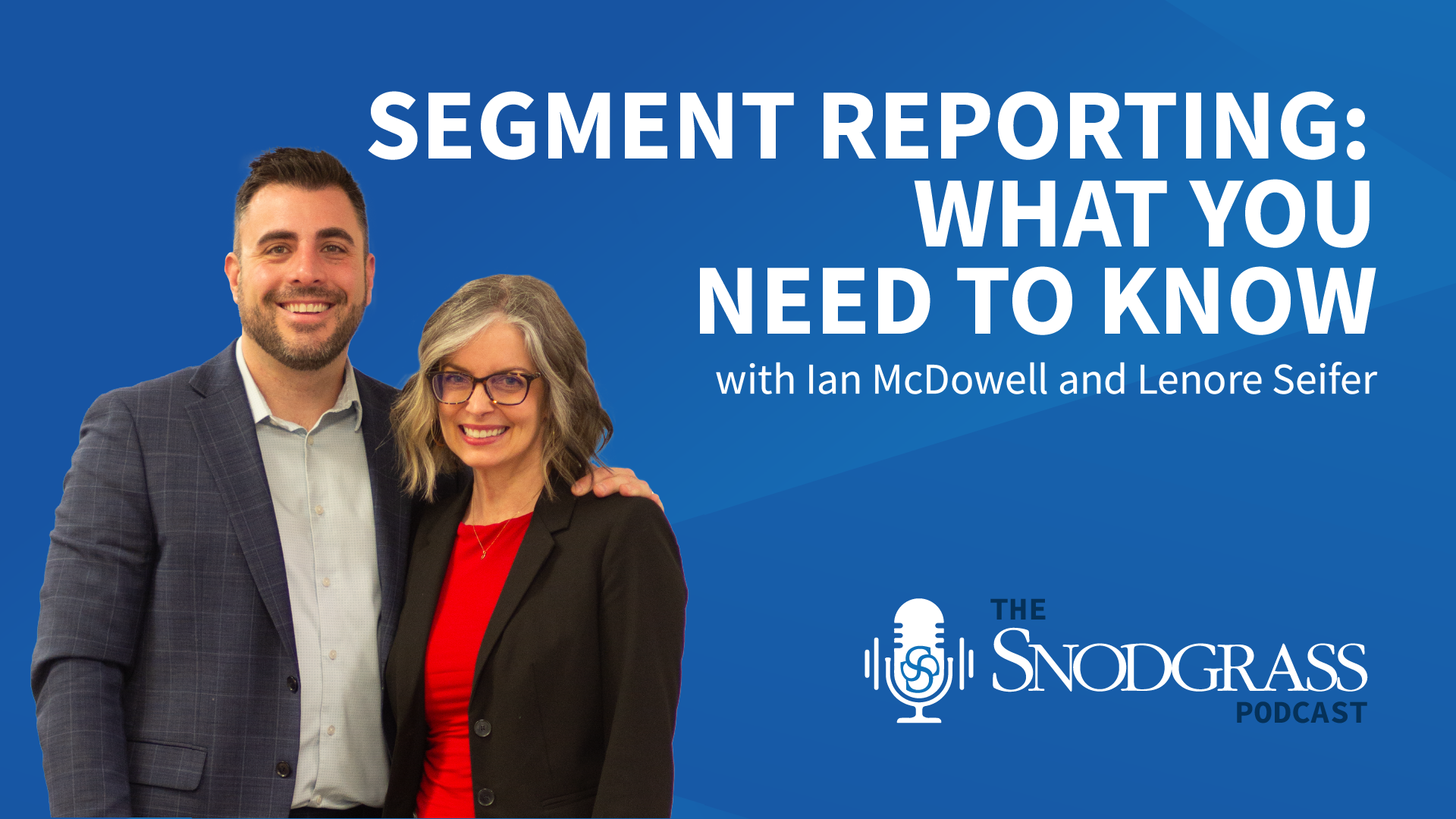2021 National Defense Authorization Act
The National Defense Authorization Act was passed by the House on December 8, 2020, and the Senate on December 11, 2020, with bipartisan support. The act contains a number of significant reforms to the Bank Secrecy Act (BSA) and anti-money laundering (AML) laws. The act includes requirements for the Financial Crimes Enforcement Network (FinCEN) to establish and maintain a national registry of beneficial ownership information that banks may utilize in complying with customer due diligence (CDD) requirements, establishes a new whistleblower program, and increases penalties for violation of BSA/AML requirements, among other changes.
https://www.congress.gov/bill/116th-congress/house-bill/6395
Agencies Announce Annual Adjustment to the Asset-Size Thresholds for Community Reinvestment Act (CRA)
A “small bank” or “small savings association” will be defined as an institution that, as of December 31 of either of the prior two calendar years, had assets of less than $1.322 billion. An “intermediate small bank” or “intermediate small savings association” will be defined as a small institution with assets of at least $330 million as of December 31 of both of the prior two calendar years, and less than $1.322 billion as of December 31 of either of the prior two calendar years. These adjustments take effect on January 1, 2021.
https://www.fdic.gov/news/press-releases/2020/pr20140a.pdf
Office of the Comptroller of the Currency (OCC) – CRA: Notice of Proposed Rulemaking
On November 25, 2020, the OCC issued a proposed rule and request for comment on its proposed approach to determine the CRA evaluation measure benchmarks, retail lending distribution test thresholds, and community development minimums under the June 2020 CRA final rule’s (2020 final rule) general performance standards. The proposal also explains how the OCC would treat significant declines in CRA activities levels in connection with performance context following the establishment of the benchmarks, thresholds, and minimums. Further, the proposed rule would make clarifying and technical amendments to the 2020 final rule.
https://www.occ.gov/news-issuances/bulletins/2020/bulletin-2020-103.html
Joint Fact Sheet on BSA Due Diligence Requirements for Charities and Nonprofit Organizations
On November 19, 2020, the agencies issued a joint fact sheet to provide clarity on how to apply a risk-based approach to meeting the CDD requirements contained in FinCEN’s 2016 CDD Final Rule when providing services to charities and other nonprofit organizations. This joint fact sheet does not alter existing BSA/AML legal or regulatory requirements, nor does it establish new supervisory expectations.
https://www.fdic.gov/news/financial-institution-letters/2020/fil20106a.pdf
Interagency Statement on LIBOR Transition for Loans
On November 6, 2020, the agencies issued a joint statement that they are not endorsing a specific replacement rate for LIBOR for loans. A bank may use any reference rate for its loans that the bank determines to be appropriate for its funding model and customer needs. However, the bank should include fallback language in its lending contracts that provides for use of a robust fallback rate if the initial reference rate is discontinued.
https://www.fdic.gov/news/financial-institution-letters/2020/fil20104a.pdf
Agencies Invite Comment on Proposed Rule under BSA
On October 23, 2020, FinCEN and the Federal Reserve Board (FRB) invited comment on a proposed rule that would amend the recordkeeping and travel rule regulations under BSA. FinCEN and the FRB, pursuant to their shared authority, are proposing amendments to the recordkeeping rule jointly, while FinCEN, pursuant to its sole authority, is proposing amendments to the travel rule.
Under the current recordkeeping and travel rule regulations, financial institutions must collect, retain, and transmit certain information related to funds transfers and transmittals of funds over $3,000. The proposed rule lowers the applicable threshold from $3,000 to $250 for international transactions. The threshold for domestic transactions remains unchanged at $3,000.
The proposed rule also further clarifies that those regulations apply to transactions above the applicable threshold involving convertible virtual currencies, as well as transactions involving digital assets with legal tender status, by clarifying the meaning of “money” as used in certain defined terms.
https://www.federalreserve.gov/newsevents/pressreleases/bcreg20201023a.htm
Federal Deposit Insurance Corporation (FDIC) Approves Interim Final Rule to Provide Temporary Relief from Part 363 Audit and Reporting Requirements
On October 20, 2020, the FDIC Board of Directors voted to issue an interim final rule to provide temporary relief from the Part 363 Audit and Reporting requirements for insured depository institutions that have experienced temporary growth due to participation in the Paycheck Protection Program, the Paycheck Protection Program Liquidity Facility, the Money Market Mutual Liquidity Fund, or other factors, such as other stimulus activities.
https://www.fdic.gov/news/financial-institution-letters/2020/fil20099.html
Consumer Financial Protection Bureau (CFPB) Issues Advance Notice of Proposed Rulemaking (ANPR) on Consumer Access to Financial Records
On October 22, 2020, the CFPB issued an ANPR to solicit comments and information to assist the CFPB in developing regulations to implement section 1033 of the Dodd-Frank Act, which provides for consumer access to financial records. “In light of the authorized data access ecosystem’s evolution since section 1033 was enacted, the Bureau has determined to commence a process that ultimately could lead to regulations that clarify the Bureau’s compliance expectations and help to establish market practices to ensure that consumers have access to consumer financial data. The Bureau is issuing this ANPR to solicit comments and information that will assist the Bureau in developing proposed regulations under section 1033.” The questions are grouped into nine categories, including costs and benefits of consumer data access; competitive incentives; standard-setting; access scope; consumer control and privacy; other legal requirements; data security; data accuracy; and other information.
If you have questions about this update, please contact Tim Schofer at tschofer@srsnodgrass.com, Frank Antiga at fantiga@srsnodgrass.com, or Michael Caparoula at mcaparoula@srsnodgrass.com or 724-934-0344.



